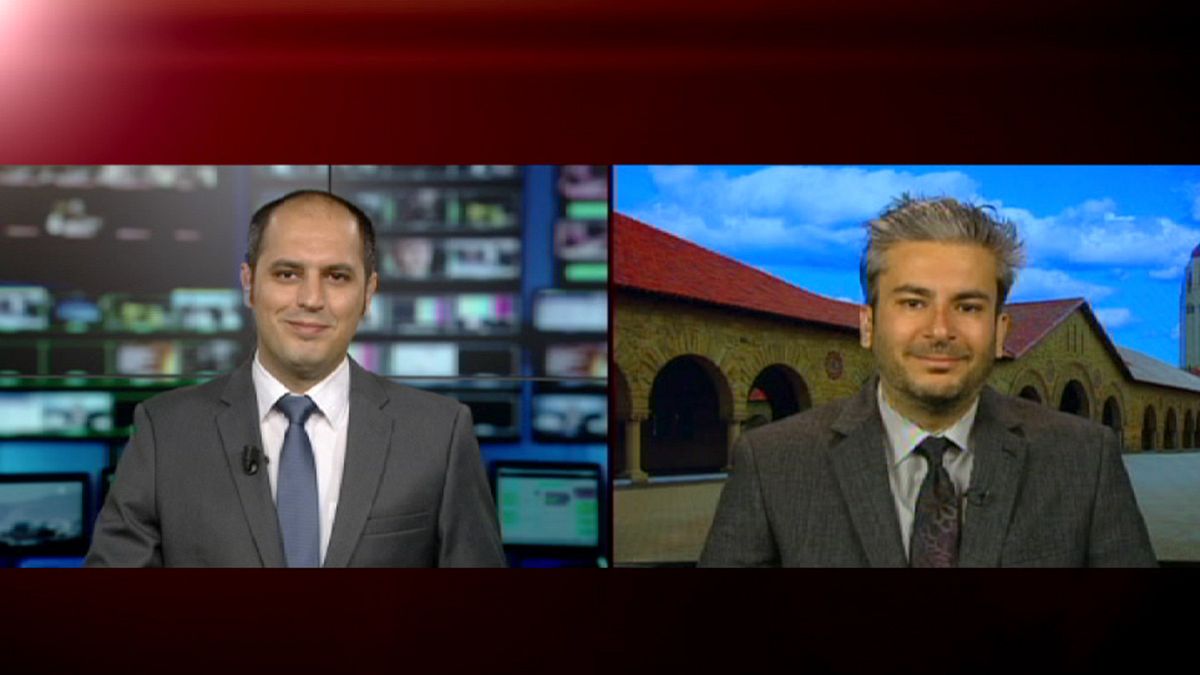Militants from the Islamic State of Iraq and the Levant have seized a lot of territory and several towns in the north of Iraq in the past week.
The conflict is turning increasingly sectarian. The Sunni extremists continue to tighten their grip on cities north of Baghdad.
Mainly Shi’ite residents in the capital have responded to a call by an influential Shi’ite leader and will defend themselves if ISIL’s offensive heads south.
The United States said it could launch air strikes and perhaps act jointly with its arch-enemy Iran to support the Iraqi government.
We spoke with Middle East analyst from Sanford University Arash Aramesh.
euronews: “Who in the region benefits from a divided Iraq?”
Arash Aramesh: “In the short term Iran’s influence will be greatly reduced in the region
if Iraq is reshaped as a federal country with one part in the hand of Sunnis with in another part Kurdistan, leaving the centre and south in the control of Shi’ites. It would reduce Iran’s influence in some parts of the Middle East. But in the long term it could disable the region.
The creation of an independent Kurdistan might be danger for Iran and Turkey. On the other hand, an independent Sunni country crossing the borders of Syria and Iraq in land under the control of no one, could be dangerous, even for those among the Persian gulf states who support the extremist groups. If these groups get more power than they should have, these countries would be in danger.”
euronews: “There are several reports about the deploying of Iranian Revolutionary Guard Corps in Iraq. But Iranian officials have denied this. Why should Iran’s regime hide supporting the Iraqi state in this case?”
Arash Aramesh: “Even Shi’ites might disagree with deploying military forces onto Iraqi soil. Don’t forget Iran and Iraq fought an eight-year war with each other and there is a historical background of competition between these 2 regional powers. In addition, the Al-Maliki government did not send any request for this. If Iran has sent two units of revolutionary guards it wants to keep this quiet and confidential. They do not want it to be used against them by extremist Sunnis. One of the most frequent criticisms of the Nouri Al-Maliki government is it more loyal to Tehran than to Iraqi people .”
euronews: “Pentagon spokesman Rear Admiral John Kirby has said ‘there are no plans to have consultations with Iran about military activities in Iraq’. But on the other hand, Secretary of State John Kerry says ‘we are open to any constructive process here that could minimize the violence’. The question is, how real is the possibility of Iran and the U.S. collaborating? And If this collaboration is not military, what does it mean?”
Arash Aramesh: “The possibility of confidential collaboration is high. As you know, they have a background of working together, in 2001 after the attack on Afghanistan, and also in 2003 Iran helped the U.S.
But after some challenges and policy changes in the Bush Government , Iran was disappointed. The people who are at the top of Iran’s state have an historical background of distrust of and hostility to the West. It’s interesting, the short and long-term strategic interests of both in the region are shared.
Both the U.S. and Iran are interested in having a moderate Sunni Government and a stable state in Iraq . To achieve this they could co-operate. It’s important to know that the gaps between Iran and the U.S are very deep and collaborating on Iraq will not be to further the cause of military unity or strategic unity, but they can work together in some periods and in some cases.”
